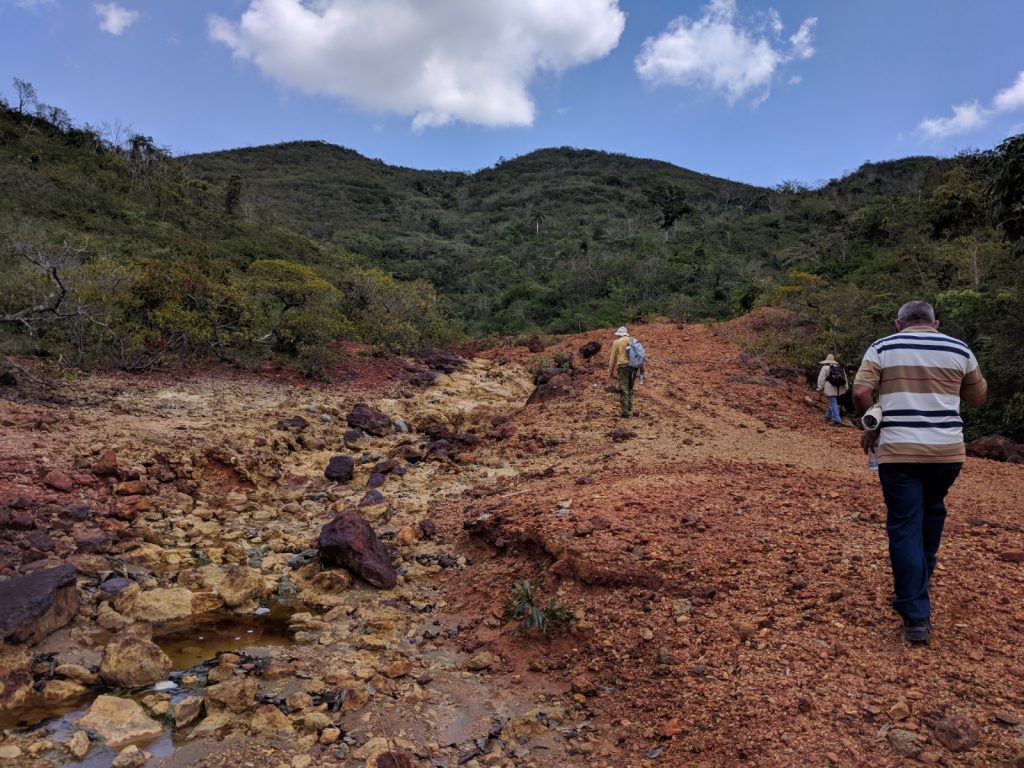Canadian junior Millbrook aims to lead Cuba’s mining pack

Canada’s Millbrook Minerals has recently inked an historic deal with Cuban state mining company GeoMinera S.A. to explore and develop three former copper-zinc-silver-gold producing assets in the country.
The agreement makes the Ontario-based privately held miner the first Canadian firm to sign a deal in Cuba since the mid 90’s. It also establishes it as the first company to sign an International Economic Association agreement (IEA) and one of the only three foreigners active in the Cuban mining space — with Sherritt International and Trafigura being the other two.
Millbrook’s President Doug Hunter told MINING.com that while the IEA model was formally introduced in the updated Cuban Foreign Investment Law of June 2014, it had not been used used in the Cuban mineral resource space until now.
Millbrook’s focus is to develop three former copper-zinc-gold-silver producers found within the Los Pasos concession — San Fernando, Antonio and Los Cerros mines.
The idea, he says, is to develop a new pipeline of projects that can lead to production and marketing of metals, governed by a joint venture arrangement. Such endeavours would include also advancing the precious metal-rich project, Santa Rosa, which is part of Los Pasos Formation.
The deal came only four days after Miguel Mario Díaz-Canel Bermudez swore in as Cuba’s new President, the first one in nearly 60 years who is not a Castro.
When assuming in April, Díaz-Canel said he would work to implement a long-term plan laid out by the National Assembly and Communist Party to permit moderate growth of private enterprises such as restaurants and taxis.
But he also said it would leave the economy’s most important sectors – energy, mining, telecommunications, medical services and the production of rum and cigars – in the hands of the state.
“The development of the mining sector is a national economic priority for Cuba and the Los Pasos project is a key part of that strategy,” Gustavo Puentes Pereda, Director General of GeoMinera S.A., said while signing the agreement last month.
Millbrook’s focus is to develop three past producers found within the Los Pasos concession — San Fernando, Antonio and Los Cerros mines— while also advancing the 16 known additional exploration targets. Once and if the commercial viability of the deposits is confirmed, the Canadian miner and GeoMinera will form the agreed joint venture in charge of producing and marketing the metals to be extracted at the Los Pasos project.
Highly prospective, relatively unexplored

Rock sample from Millbrook Minerals’ Los Pasos property in Cuba. (Image courtesy of Millbrook Minerals.)
The asset, explains Hunter, is a highly prospective brownfield belt containing polymetallic volcanogenic massive sulfide ore deposits (VMS), which remains relatively unexplored.
The area correlates with similar Cretaceous volcanic arc rocks in the Dominican Republic, which host the Barrick’s and Goldcorp’s Pueblo Viejo, Perilya’s Cerro de Maimón and other large gold and silver enriched VMS deposits.
Hunter says the Los Pasos concession looks very similar in scale and mine potential to the Abitibi belt in Canada from Val D’Or to Noranda, as was the state of knowledge of Abitibi in the 1920s. That, he adds, opens up significant exploration potential and opportunity for new large-scale discoveries.
Once and if the commercial viability of the deposits is confirmed, Millbrook and Cuba’s GeoMinera will form a joint venture.
“Along with our Cuban partners, we chose to focus on the Los Pasos because it’s among the most promising prospects in the country’s mineral resource development and the most advanced in brownfield state in order to get to production as quickly as possible,” adds Alastair McIntyre, who is in charge of Business Development. “Our intention is focus on these projects to understand the economics as quickly as possible.”
For its second exploration phase, Millbrook is targeting a $7-million program that would conclude with a preliminary economic assessment.
Cuba hopes foreign investment will boost its economy, which only managed to climb out of a recession in the first half of 2017.
The country’s mining sector, though rather dormant, is full of potential. The island is the world’s sixth largest nickel producer and one of the top 10 cobalt and nickel mining countries.
It also holds significant deposits of other minerals, oil and over 240 projects hoping to attract capital and be developed, according to the latest report published by the U.S. Geological Survey.

The San Fernando mine (pictured) produced copper and zinc intermittently from 1827 to the late 1950s, when it shut down during the Cuban Revolution. It produced 200,000 tonnes copper-zinc ore from 10 underground levels accessed by a 173-metre shaft. (Image courtesy of Millbrook Minerals.)
{{ commodity.name }}
{{ post.title }}
{{ post.date }}




Comments